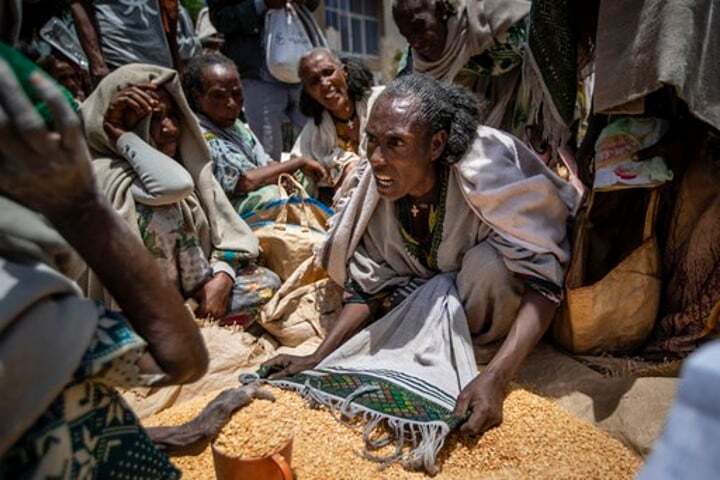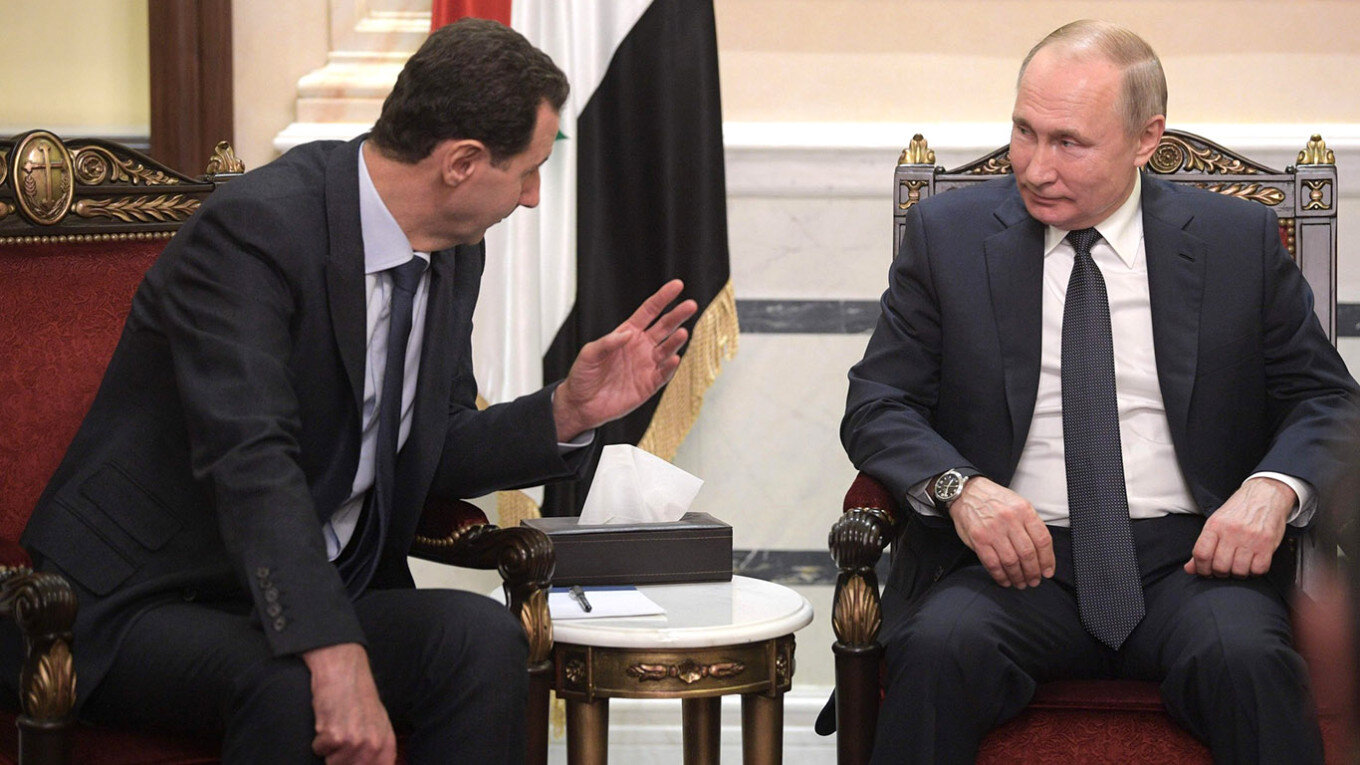 Messay Kebede
Messay Kebede
Dear Mersie Ejigu
I applaud you for reading and critically commenting on my book on Ethiopian modernization (see http://zehabesha.com/critique-by-mersie-ejigu-of-prof-mesay-kebedes-book-ethiopian-modernization-opportunities-and-derailments-video-title-suggestions/). With this review, you have distinguished yourself from all those many Ethiopian intellectuals who are reluctant to engage in scholarly exchanges with other Ethiopians. That said, since I have detected several points that show noticeable misreadings of the real messages of the book, I hereby provide clarifications to rectify them.
- Most of your criticisms seem to stem from the fact that my analysis is not in line with the established premises and discourses characteristic of imperial Ethiopia. This impression prevents me from considering your criticisms as scholarly evaluations; they are rather admonishments for not falling in line with some given paradigm. For instance, you remind me that “Ethiopia existed over three thousand years prior to Atse Tewodros with well documented contributions to world civilization, arts and literature, astronomy, mathematics, architecture, and engineering” and that “Ethiopians were the first to invent the science of stars and gave names to the planets, not at random and without meaning, but descriptive of the qualities which they conceived them to possess, and it was from them that this art passed the Egyptians.” I reply that your assertions warm up the heart of any committed Ethiopia, but they also give the distinct perception of wandering into the realm of the mythical, which in my view is unworthy of a scholarly review.
In general, I must confess that reading your critique gave me the impression that for you everything was fine and dandy during the reign of Atses, but that everything went astray afterward. Yet what came afterward was just a consequence and not a cause. The radicalism of the student movement, the rise of the Derg, the revolution, the coming to power of the TPLF and other ethnonationalists are all consequences of the derailment that generated a centralized and homogenizing imperial autocracy. This approach is one of the core ideas of the book: Ethiopian predicaments are explained neither by prior ethnic hostilities, nor by student radicalization, nor by the inadequacy of bequeathed traditions. All these alleged causes are just occurrences and, as such, belong to interlocking chains of consequences whose impellent was and still is the subordination of modernity to the project of political absolutism, which is also the method to subdue the economic life of the country to the interests of ethnic, religious, or exclusionary groups of nationals.
- You write that I seem “to work on an incomplete modernization literature (see, Bauman’s modernity and ambivalence; Inglehart & Welzel’s modernization) marked by opinionated side remarks- thus failing to address the whole gamut of issues surrounding political economy, state formation, and functioning.” The criticism would have been correct if I intended to provide an exhaustive account of modernization theories. For obvious reasons, one being that a full account would require a separate book, such was not the goal of the book. For obvious reasons too, my approach was selective because of the need to confine my analysis to those theories that are relevant to understanding Ethiopian predicaments. The authors that I selected have clearly tied modernization with defensive needs, the most pertinent example being the case of Japan’s modernization and its impact on Ethiopian leaders and early intellectuals. My argument is precisely based on the fact that the very idea of modernizing Ethiopia primarily originated from Ethiopian leaders’ and early intellectuals’ legitimate fear of colonial encirclement and invasion. Before becoming a pursuit of social betterment, modernization was a defensive design, and this was in harmony with the well-known Ethiopian ethos for survival. Hence my interest in Rostow’s theory: while I share your view that the theory is “linear and too mechanistic,” his notion of “reactive nationalism” perfectly fits the state of mind of leaders and intellectuals of pre-Italian occupation of Ethiopia.
- Sadly, I note that you have missed a core element of my argumentation. Your misreading originates from what you consider an offense against a cherished belief, namely, my view on Menilik’s southern expansion. Even though I endeavored to show both its good and bad sides, you take only the bad side and criticize me for saying that “Menelik’s conquest was followed by “Amhara domination.” Going further you add: “Stretching credulity, you offer the specious suggestion that this derailed Ethiopia’s modernization drive without reason or evidence.” Now, if your statement means that there was nothing that even remotely resembled “Amhara domination”, then I have nothing to say, except to remind you that “Amhara domination” applies exclusively to ruling elites and never to the tolerant and welcoming Amhara people, who alas was also used and abused both by its own leaders and ethnonationalists of all political stripes. With your trend of thought, you might as well deny the occurrence of a radical revolution that was motivated by the existence of flagrant social and ethnic inequalities. Need I remind you of the impact that the main slogan of the student movement, “Land to the Tiller,” had on the unwinding of the revolutionary process? To acknowledge this fact gives you the logical link between the expansion and the derailment of modernization. Indeed, is it not obvious that the need to use a repressive political structure to preserve the landholding system accounts for the imperial derailment towards autocracy, which in turn led to the revolutionary and ethnonationalist derailments? In a system designed to subjugate selected peoples, there is no democracy for anybody: freedom is indivisible.
- I also see some conspicuous distortions. Because I raise an issue, it does not mean that I support it. Instead, it often means that I am trying to initiate a debate, as it is proper for scholarly work. Thus, you seem to think that I endorse the position that the Ethiopian Church was ignorant, even though on the same page I expressly attribute the position to “some views.” I also cite and follow to some extent the position of David Levine, who has a different stand. Another example of distortion is your reaction to my statement that ” ethnicization parades itself as the appropriate solution”. You write: “No, Sir. I would argue that you don’t solve societal problems by going backward and embracing endemic polarization. ” Yet, the usage of the verb “to parade” does not warrant your riposte since the verb signifies that ethnicity pretends to be what in reality it is not. Moreover, who is really going backward: the one who acknowledges the changes that occurred and tries to deal with them in the context of a united Ethiopia or the one who ignores the given reality and wants to revive a bygone view of Ethiopia?
In closing, more could be said, but what has been said so far is enough to give a fair idea of the flaws of the critique. However, I want to be absolutely clear that your critical intent in no way motivated my rebuttal: a scholarly work is meant for critical scrutiny, provided that the review reflects the words and ideas of the author. What concerned me in your “review” is not that you do not approve of my analyses, but that your disapproval stems from a paradigm that is alien to the book. As a result, it does not come up with counterarguments exposing my shortcomings, blind spots, and contradictions, but rather reprimands me for failing to abide by some outdated premises.

















I stopped reading Mersie Ejigu’s book review partway through because the review, as Professor Mesay Kebede pointed out, didn’t seem to offer “scholarly evaluations but rather appeared to be admonishments for not conforming to a certain paradigm.”
Mesay’s response to the review is both articulate and respectful, providing a robust defense of his work and perspective. His response contributes to a healthy academic discourse by addressing criticisms and providing clarifications.
For Mesay’s information, I’ve authored numerous articles, book reviews, and article reviews, including ones for Dr. Fikre Tolossa and Professor Al Mariam years ago. However, I’ve yet to receive public comments or feedback from them.
My most recent book review was on “At the Center of the World in Ethiopia” by S. W. Omamo. Despite sharing the link on Twitter and emailing him my review, he didn’t acknowledge receipt. You can find the review: http://zehabesha.com/book-review-at-the-center-of-the-world-in-ethiopia/.
I also wrote an article appreciating Hermela Aregawi, titled “Hermela Aregawi Manifests Abuna Aregawi’s Spirit”. I shared the link with her on Twitter; she didn’t acknowledge my tweet. You can read the article: http://zehabesha.com/hermela-aregawi-manifests-abuna-aregawis-spirit/.
Based on my experience, I suspect that Professor Mesay may not respond to this post. However, it’s important to remember that people often comment because they care about the subject. When one receives a comment, it might be worth considering a reply, as communication is a two-way street.
የመሳይ ከበደ ኩት አትበሉኝ የሹም ዶሮ ባህሪ!
መሳይ ከበደ የአቶ መርስኤን ትችት ለማጣጣል “Most of your criticisms seem to stem from the fact that my analysis is not in line with the established premises and discourses characteristic of imperial Ethiopia.” የሚል አቶ መርስኤ ያላሉትን ድሪቶ ይዞ መጣ፡፡
አቶ መርስኤ እጅጉ ያሉት The content of your book is not based on internationally accepted ሳይንሳዊ ግንዛቤ እንጅ አንተ ትችቱን ለማጣጣል እንደፈበረክው ” In line of the Imperial Ethiopia” ለማለት አይደለም፡፡ ይህቺ ኢምፔሪያል ኢትዮጵያ መከራዋ!
ትችት መቋቋም ሲያቅት ነገሮችን ወደ ብሔር ብሔረሰብ እየጎተቱ ድጋፍ ለማግኘት መመሞከር የምሁር ባህሪ ሳይሆን የካድሬ ባህሪ ነው፡፡
The whole content of the writting is not a poet that needs Sheakspirian English or Elizabetean English. Does the writter forwarding his arguments for the wider reader or to the person he thiks that he stood against his way? In fact it is not easy for older scholars to peg with the new generation thought, in reality if his critics is not read by this media followers, it is a lot better if it was sent by his email address, I really regret for wasting my time by reading the article.
ፕሮፌሶሩ ኢትዮጵያ ውስጥ ethnic federalism እንዳለና ሥር እንደሰደድም ያምናል። ያለበት አገር ፌደራል ሥርዓት እንዴት እንደተመሠረተ አላነበበም። የአሜሪካ መሥራች አባቶች ፌደራል ሥርዓቱን ሲመሠርቱ፣ ክልል አልፈጠሩም፣ ከፈጠራ ክልልም ፊላዴልፊያ የመጣ ሰው አልነበረም። ሕወሀትና ኦነግ፣ ክልል ፈጥረው፣ የፈለጉትን መሬት ወስደው፣ያለምንም ሕጋዊ ውክልና ምርኮኛ ሰብስበው ፌደራላዊት ዲሞክራሲያዊት ኢትዮጵያን መሠረትን ብለው፣ ለ83 ጎሣ 9 ክልል ፈጥረው፣ የቀሩትን 74 ጎሣዎች የዘጠኙ ተገዢ አድርገው፣ ያለምንም ውክልና፣ ፕሮፌሶር የፌደራል ሥራዓት ተፈጥሯል ይላሉ። እውነቱ፣ ፌደራል የጎሣ ሥርዓት የለንም። ያለው በፌደራልነት ተሳብቦ፣ አሐዳዊ አምባገነን የአንድ ጎሣ አገዛዝ ነው።
የዛሬው ፕሮፌሶር ከ1985 አክራሪ ማርክሲስት ማንነቱ ያደገ መስሎኝ ደስ ብሎኝ ነበር። ግና ያው 6 ኪሎ እንደነበረው ነው። ዛሬ ያለበትን አሜሪካ፣ እንዲሁም የጀርመንን፣ የጣሊያንንና የጃፓንንም የአገር ግንባታ ታሪክ አያውቅም። እኒህ አገሮች ዛሬ ያላቸውን ቅርጽ የያዙት ብዙ ደም አፍስሰውና አጥንት ከስክሰው መሆኑን አልተረዳም። ምኒልክም የድሮዋን ኢትዮጵያ ለመመለስ ወደ ደቡብ፣ ምሥራቅ፣ ምዕራብና ሰሜንም ዘምተው ደም ፈስሷል፣የጳውሎስ ኞኞን “አጤ ምኒልክ” ብታነብብ፣ መብትም በተሻለ አስከብረዋል። አገር መገንባቱም ላይ ቢስማርክን፣ ጋሪባልዲን፣ አብርሃም ሊንክልንና የሜጂ ሥርዓተ መንግሥት መልሰው በጦር ያቋቋሙትን ቅኝ ገዢ እንዳላሰኛቸው፣ ኢትዮጵያም ማስተዋል ቢኖር ኖሮ፣ ምኒልክም ቅኝ ገዢ አይባሉም። ደቡቡን በሙሉ ያወደመው አብርሃም ሊንኮልን ዋሽንግቶን ዲ.ሲ. በመንግሥት ሐውልት እንደተሠራለት አላየህም ? በአንጻሩ፣ ማርክሲስት ሌኒኒስቷ ኢትዮጵያ የምኒልክን chemin de fer ብትንትን አድርጋ፣ እንዳንተ፣ ምኒልክን ያላግባብ ትወቅስ ነበር። ምኒልክ አንኮበር ቁጭ ብለው ባይነቃነቁ ኖሮ በዙሪያቸው የነበሩት የፈረንሳይ፣ የጣሊያን፣የእንግሊዝ ኢምፔሪያሊስቶች መጫወቻ አንሆንም ነበር? ያ የምኒልክ ዘመቻ ጥቅሙ በዛሬው ዕድሜህም አይታይህም ወይስ እንደ ኦነግ አባላት 16ኛው ክፍለ ዘመን ላይ ተቸክለህና ከ100 በላይ ጎሣዎች ባሉባት አሜሪካ ደልቶህ እየኖርህ፣ እንደነዋለልኝ መኮንንም መዘላበድ ይሻላል? ብዙ የሚባል ነበር፣ ግን የአቶ መርሴ እጅጉን አስተያየት ማጣመሙን ትተህ፣ ከእውነት ጋር መጣላቱን ብታቆም ይበጃል።
አንድነት ሰመረ ግምቦት 7 እና ኢሳት የተባለ የብርሃኑ ነጋ ድርጅት ነው እንዲህ ያሉ ኢትዮጵያዊነት ላይ ታይተው ያልታወቁ ለኢትዮጵያ በአንድም አደባባይ ያልቆሙ ዛሬ ከቡርኪና ፋሶ እንደመጡ ሁሉ ምንገዱ በዚህ ካልሆነ ይሉሃል፡፡ ግለሰቡ መአዛ የተባለችው ጋዜጠኛ ጋር በሰጠው ፍንጭ የዘር ሃረጉን ሲመዝዝ ከወደነ ሌንጮ ሰፈር መሆኑን ነው ፡፡ያ ባልከፋ ነበር ነገር ግ ን በቅብብሎሽ የአንድነት ሃይሉን የሚያሹት ነገር ዋጋ እያስከፈለ ነው ግለሰቡ በየቦታው ርህራሄ በሌላቸው ሰዎች ሲመተር ሽል ተቀዶ ሲወጣ አዝኖ የተነፈሰው ነገር የለም፡፡ አሁን በስተ መጨረሻ ኦነግ በሞተበት ጊዜ ኦነግ ሲሆንም ያሳዝናል፡፡ የኢትዮጵያን ጉዳይ በፈለጉት መንገድ እንደቦይ እንዲወስዱት እድል መስጠት አይገባም፡፡ ከፈለገ ኦ ኤም ኤን ዘንድ ሂዶ ታሪክ ገልብጦ ይጻፍ ቄሮ ከተቀበለው እኛ ዛሬ የሚያስፈልገን ድንጋይ ተንተርሶ የሚያድር አገር ወዳድ እንጅ ስራ ሲፈታ ጸጉር እየሰነጠቀ ጭር ሲል አልወድም የሚል አይነት መሆን የለበትም፡፡ ኢሳት በሌላ መልክ መጥቷል በኦነግ ባንዲራ ሃሳቡን ይስጥ፡፡ በተረፈ ፍልስፍና ያልሆነ ፍልስፍና ልባችን አይደርስም፡፡ ማርክስ እንዲህ አለ ፕሌቶ እንዲህ ብሎ ነበር ዲካርት ያላለው የለም እያሉ የትልቅነታቸውን መለኪያ የሚጠቃቅሱት የትም አላደረሰንም፡፡
Prof. Mesay,
From your response to the critique, I suspect you still live with your arrogance of the old times at Addis Ababa University. Although I was not your student, I heard you used to grade your students on the basis of “A” for God, “B” for Mesay Kebede and “C” for a cleaver student.
I am sorry to say that you have a tendency of supporting politics based on ethnic identity which is fascistic and ends up only in war and destruction as is the case in Ethiopia now.
All the comments that is written didn’t get the core content of the book. It seems everyone is carried out with feelings rather than getting the idea. I personally liked the book except some reservation over the Ethiopian church not being modern like the western churches.
Well done Dr. Messyay
Getu Bogale, fake name
So, you think you have a better brain than others? Zinjero yerasua melata ayitayatim, kentu